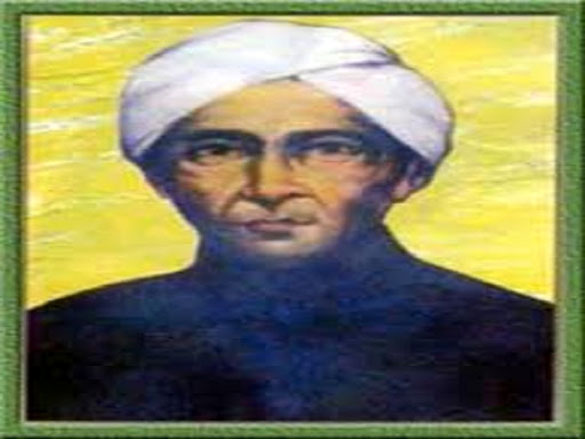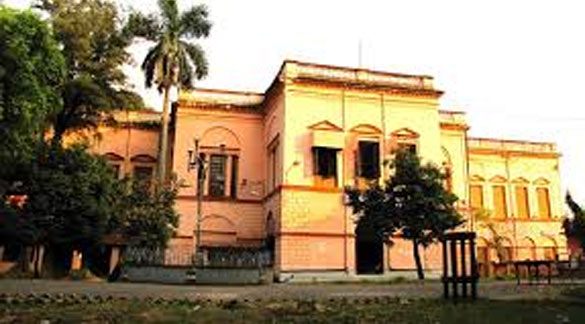Haji Mohammad Mohsin: The Greatest Philanthropist of Bengal

By
S.Arshad, New Age Islam
23 July
2020
Haji
Mohammad Mohsin was one of the greatest Muslim personalities of undivided
Bengal in British India. He is known as a great philanthropist and educationist
of Bengal. He was one of the wealthiest men in the area as he possessed huge
properties in Hooghly, Nadia in today's Bengal and in Khulna and Jessore in
today's Bangladesh. He was born in Chinsurah of Hooghly district of Bengal in
1733. His ancestors had come to India from Iran as tourists and had settled in
Murshidabad, which was a centre of power and learning during Muslim rule. His
father Haji Hafizullah married the widow of Agha Motahar who was an advisor in
Mughal Emperor Aurangzeb's court. Pleased with his work, Aurangzeb gifted Agha
Motahar the jagir of Hooghly, Nadia, 24 Parganas and Jessore. Therefore, Agha
Motahar left Delhi and settled in Hooghly. After his death, his daughter Mannu
Jan inherited the property from her father. Before her death, Mannu Jan gifted
all her property to her half brother Haji Mohammad Mohsin.
 Photo courtesy WBMDC
Photo courtesy WBMDC
-----
Though Haji
Mohsin was a wealthy man, he lived a simple life. He was Sufi minded and earned
his living by sewing caps and calligraphy of the holy Quran. He dedicated all
the income from his property for charity and social and educational causes.
Because of his generosity he was called Danvir Mohsin. He helped the starved
and destitute during the great famine of Bengal in 1776-77.
For the
purpose of serving the poor and the needy, he had formed a Trust with his
entire wealth of 1, 50, 000 Takka in his life. According to the government
accounts, it has grown to over Rs 75 lakh today. After Haji Mohsin's death, the
Mohsin Fund was set up in 1835 with Ra 10 lakh from the income of his Wakf
estates. He had mentioned in his will that meritorious Muslim students should
be given financial assistance from his fund.
Therefore,
the West Bengal government awards Scholarshipsworth Rs 2 lakh to 100 Muslim
students (Rs 20,000 each) every year from Mohsin Fund.
 Hooghly Mohsin College
Hooghly Mohsin College
-----
Hooghly
Mohsin College was built by him which is one of the best colleges in West
Bengal.
After his
death, a grand Imambara was built at the place where he lived. It is called
Hooghly Imambara. It is situated over 42 bighas of land. The construction of
the Imambara started in 1841 and the cost of construction was Rs 8 lakh. The
design of the Imambara was made by an engineer from Jaunpur Syed Karamat Ghani.
The Imambara building is two storeyed with two minarets. Inside the Imambara,
there is a mosque and a Madrasa called Hooghly Madrasa.
Behind the
Imambara, the family graveyard of Haji Mohammad Mohsin is situated where the
graves of Haji Mohsin, his mother Zainab Begam, sister Mannu Jan, father
Hafizullah and Mirza Sohail Agha Motahar are located.
There is a
big clock at the Imambara which has a historical significance. The clock is one
of the two big clocks of the world. One is in the Buckingham Palace in London
and the other is in Hooghly Imambara. The clock was built by Blackened Marie.
Queen Victoria had wanted to gift the clock to the Imambara but the
representatives of the Imambara insisted on paying the price of the clock. The
price of the clock was RS 11,729. The clock was bought in 1852. The clock is
constituted with three huge bells made of brass. Three hammers are fixed to
three bells. The pendulum is 12 feet long.
Today the
Imambara is a tourist spot and reminds the people of the services of Haji
Mohammed Mohsin to the welfare of the poor and the underprivileged.
URL: https://newageislam.com/islamic-personalities/haji-mohammad-mohsin-greatest-philanthropist/d/122446
New Age Islam, Islam Online, Islamic Website, African Muslim News, Arab World News, South Asia News, Indian Muslim News, World Muslim News, Women in Islam, Islamic Feminism, Arab Women, Women In Arab, Islamophobia in America, Muslim Women in West, Islam Women and Feminism
